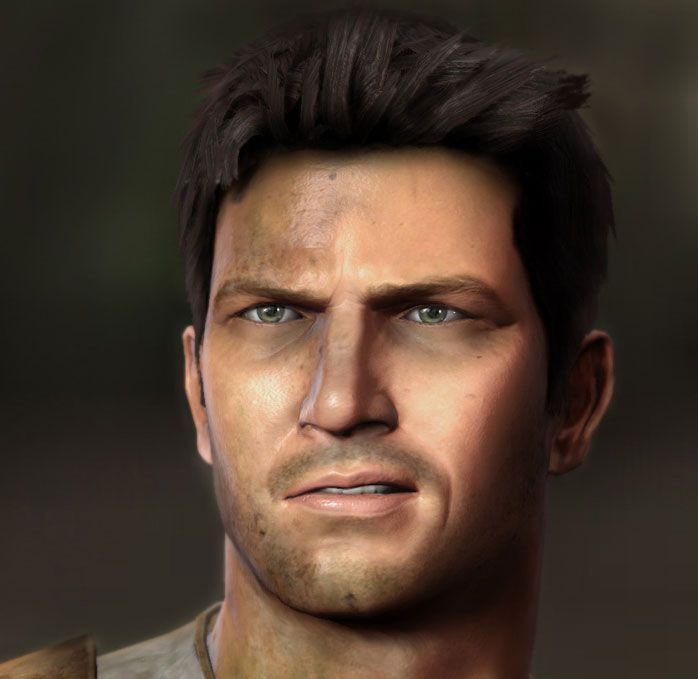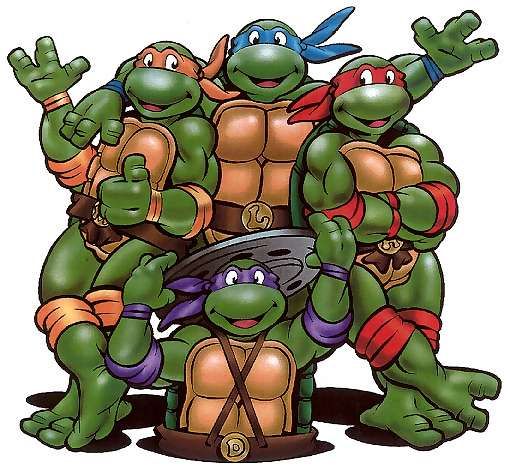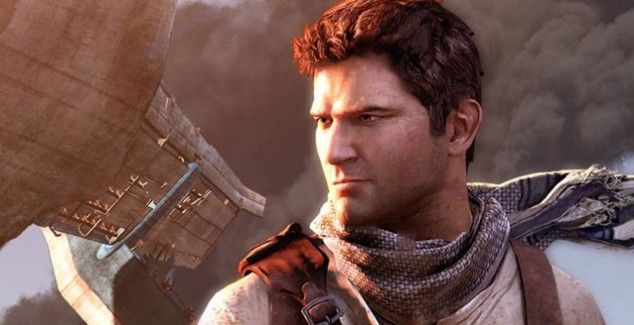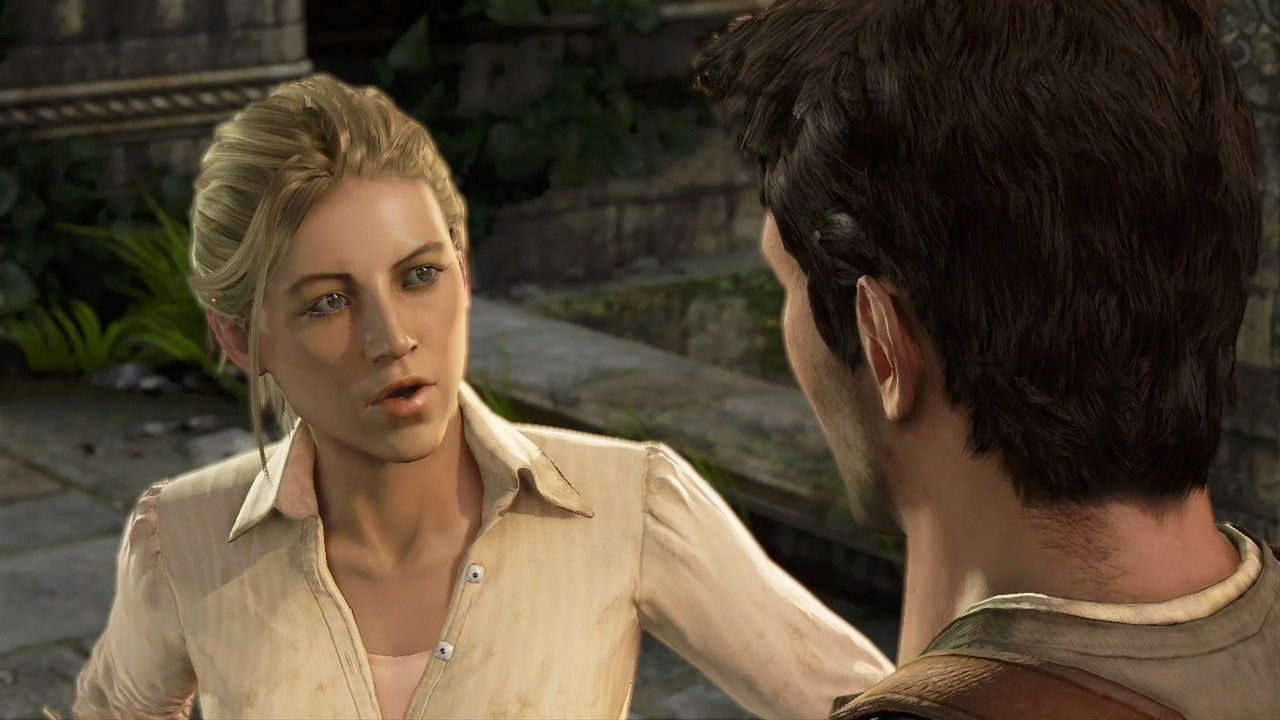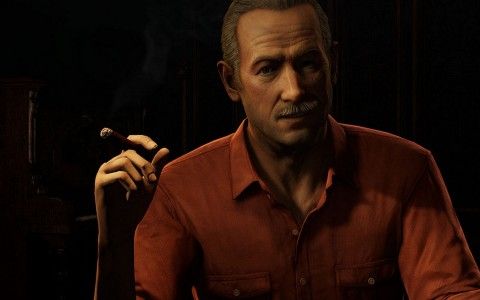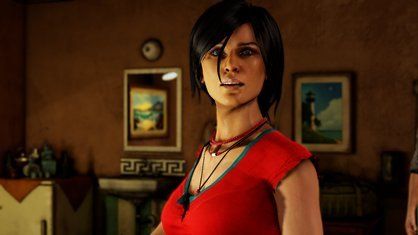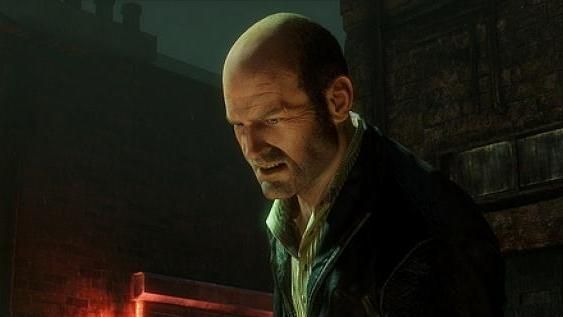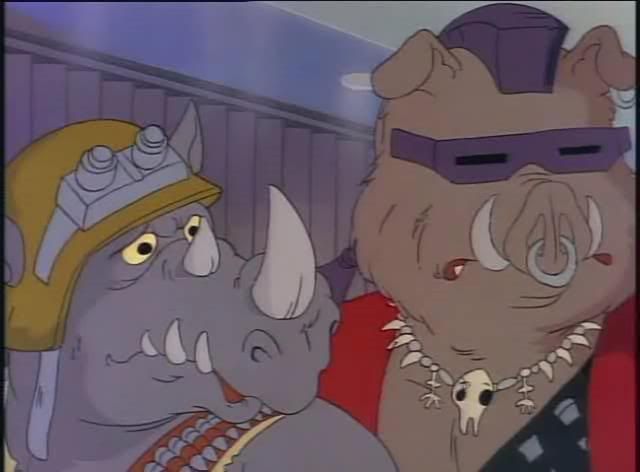Using pop-culture icons to discuss philosophy (and history, and art, and literature, and basically anything else) is a conversational art form I’ve been refining for the entirety of my adult life. It’s a great skill because it allows you to discuss complex ideas in terms to which children or your less intelligent friends can relate, and it works just as well to annoy intellectual snobs by proving that you can learn things from cartoons, video games, and Nicholas Cage films. So, in the spirit of bridging the gap between past and present, I present to you the Greek concept of humorism, explained via the Ninja Turtles, and applied to Naughty Dog’s Uncharted series. I’ll give you a quick rundown of the humors, and the rest of the article will be filled to the brim with Turtles references and arbitrary awards, both of which I’ve been told are popular these days.
The four humors, blood, phlegm, yellow bile, and black bile, were the primary fluids from which the ancient Greeks believed our bodies were made. If you’re into wielding esoteric knowledge, there is a comprehensive article on Wikipedia (or in any number of books, if you’re feeling frisky). If you don’t care about the technical aspects, the gist of it is pretty simple: an abundance or deficiency of any one of these fluids was supposed to heavily influence your personality. Blood made people sanguine, phlegm made them phlegmatic, yellow bile made them choleric, and black bile made them melancholic. This theory has been scientifically debunked, but the personalities linked to each humor are so deeply imbedded in our culture that they appear in everything from Shakespeare to Star Wars… and they find their purest distillations in recent cultural memory within the four Ninja Turtles.
Phlegmatic (Leonardo) personalities tend to be rational and unemotional. Ideas like duty and honor appeal to these types, as phlegmatics very rarely get in their own way in the pursuit of these ideals. In stories, phlegmatic characters often function as team leaders, as their relative coolness of thought makes them ideally suited to delegating responsibility – though they often fulfill such roles only because it is expected of them, and would not take the initiative otherwise.
Choleric (Raphael) personalities are strong willed, aggressive, and led by their emotions. These types follow their own moral compass, and are typically the most willing to break rules and traditions if they feel they’ve got a better idea. If they aren’t the authority figure in a group, they tend to cause problems for the one who is – though because both are such strong personalities, phlegmatics and cholerics usually have a deep, if unspoken, respect for each other.
Sanguine (Michaelangelo) personalities are impulsive and fun loving. They are very sociable and charismatic, and are usually the first to quell a conflict between others – especially between cholerics and phlegmatics, who are prone to fighting. These characters often function as the conscience of their group, and though they are usually too disorganized or impulsive to take the lead, many teams would fall apart without the unceasingly positive influence of a sanguine character.
Melancholic (Donatello) personalities are typically introverted and intellectual. Melancholics tend to be task-oriented, and are most effective when left to their own devices. Because their minds are so active, they can often be seen as neurotic or eccentric. Though they are not necessarily unfriendly, their deeply introverted nature usually leads them to support roles within their respective teams, rather than leadership roles.
Most people have a little bit of all of these characteristics, though if you look closely at your three or four best friends you can usually spot the ones who fill each of these roles in your daily life. The same goes for good characters; many of them have elements of multiple humors, but most are defined by one in particular.
Nate Drake is, at heart, a choleric, Raphael-style hero. He possesses a certain nobility, revealed through his desire to restore his family’s forgotten honor, and jokes around enough to mask the darker aspects of his character, but his deeply rooted sense of romanticism ends up making most of Nate’s decisions for him, earning him the figurative red bandana.
In regards to the team dynamic, Nate may seem like a leader because he’s the series’ protagonist – but most of the decisions which have any great effect on the plot are actually made by Elena and Sully. That is not to say that Nate is not a take-charge kind of dude, but most of the situations he ends up taking charge of arise from the mistakes made by the others, or by demands they’ve lain at Nate’s feet. This also fits with the Raphael role – Raph was arguably the strongest and most capable fighter out of the turtles, but he fared much better when serving as a reactive hero rather than a proactive one. The times when Nate takes charge – the most notable examples being his ‘great train rescue’ in Amongst Thieves and his absolute refusal to listen to Elena and Sully’s warnings throughout the entirety of Drake’s Deception – tend to be the closest Nate comes to getting himself killed. Considering the sheer number of times that he narrowly escapes the grim clutches of death, the fact that he is his own deadliest foe is saying something.
One last interesting note on this character comparison is that Nolan North, voice of Nate Drake himself, also played Raphael in the 2007 TMNT animated film. That doesn’t really shed any new light on either Raph or Nate, but it does demonstrate that Nolan North is the man, and therefore deserves free pizza whenever possible. Anybody who reads this: that duty falls to you, should you see him first.
Elena Fisher functions as the phlegmatic Leonardo figure to Nate’s Raphael, minus the implicit incestuous overtones. While both are strong willed and goal oriented, Nate’s primary motivations are internal while Elena’s are external. In Drake’s Fortune, Nate is looking for El Dorado to prove his own worth, whereas Elena figures the world deserves to hear the story. In Amongst Thieves, Nate is after Lazaravic for revenge, while Elena is caught up in the story during the shooting of an unrelated documentary which would show the world what a monster the mad Russian is. In Drake’s Deception, Elena tries to be the voice of reason to Nate, and appeals to him to save Sully as much as to help Nate himself. Her concerns tend to be more altruistic and far-reaching than those of anyone else in the series, and her willingness to put herself in danger to save others, even with little hope of doing so, earns her the blue bandana.
Elena also shares a few of Leo’s negative traits – the most significant of which being her bossiness. Elena has a tendency to thrust herself into situations in which she is not welcome, yet when the others call her on it she shrugs it off and acts like she knows better. When she gets an idea in her head, she runs with it without much consideration for the thoughts or feelings of others. A part of this is because Elena, like Leonardo, has realized that she holds the moral/philosophical high ground compared to those she works with, and she makes the mistake of believing that knowing to do the right thing means that she also knows the best way to do it.
The tumultuous relationship between Elena and Nate is interesting because there is a strong tendency between the two of them to switch roles in each other’s presence. In the first game Elena starts off as an untested filmmaker (falling short of the April O’Neil award due to her notable lack of a hideous yellow pantsuit), and fires a gun for the first time because Nate made a bum deal with some pirates and she has to help him clean up the mess. A short while later, however, she begins forging ahead on her own, taking unnecessary risks in the pursuit of El Dorado. Nate sees this and is the first one to warn her, most notably in the first game when he finds a boat and tries to get them off the island rather than risking their lives for glory, but Elena ignores him, as he later ignores her. This dynamic is reminiscent of the Chinese philosophy of yin and yang, wherein two diametrically opposed forces reflect and influence one another and unite to create a more perfect whole, but we’re still dealing with the Greeks here so that will have to wait for another article…
Moving on, Sully fills the Sanguine role of the Uncharted team. Between his cigar chomping, his alcoholism, his foul mouth, and his good-natured chauvinism, Victor “Goddamn” Sullivan makes it perfectly clear who’s the party dude in these parts. While Sully is always ready for a fight,, deep down he’s a huge softie. Sully’s cajoling attitude earns him the orange bandana.
Sully, like Mikey, functions as the group’s mediator. When Nate is having trouble, Sully is there with a bit of fatherly advice. When Elena has a lover’s tiff with Nate, Sully is there to discreetly tell her what a good guy Nate really is. When Nate basically dumps Chloe at the end of Amongst Thieves, Sully is there to try to tap that magnificent bum of hers, being the stolid, caring fellow that he is. If you were to find yourself suddenly thrust into a barfight, Sully would be the first guy to have your back. Of course, chances are pretty good that his mouthing off started the fight in the first place, and it’s not unlikely that he’d throw up in your car as you drove him home afterward, but that’s all part of his charm.
While Nate and Elena take turns switching roles with each other, Sully occasionally fills dual roles, serving as Mikey and Splinter all in one. Sully first spotted Nate’s potential as a boy, and while Drake’s interest in history and family legacy are all his own, Sully taught the boy most of his shooting and thieving skills. As these are Nate’s primary means of solving all of his life’s problems, that mentorship has clearly proven invaluable to the younger hero – as Master Splinter’s expert tutelage was to his own pupils.
Nate, Elena, and Sully fill out their respective roles admirably, but with no fourth party member appearing in all three games, the melancholic Donatello character trope falls a little short. There are several characters who turn up for short stints and help out where the others cannot, however, and between them, they make a decent patchwork Donatello.
Chloe Frazer gets a nod, though more for her tech and driving skills and less for her personality, which runs closer toward the sanguine. Still, when the team needs a specialist to, say, shut down the lights on a museum they’re robbing, or tail a group of second rate illuminati, Chloe gets the job done – and her ability to ‘do machines’ gets her on the list.
Charlie Cutter deserves a Bullet Tooth Tony award, but since this article is concerned with Ninja Turtles and not Guy Ritchie characters, he’ll have to settle for a piece of the Donatello role. Why, you ask, does this hulking wannabe footballer fill the role of arguably the wussiest hero in a halfshell? Because he spouts Shakespeare quotes and accuses his friends of being classless while he should be concentrating on the mission at hand, that’s why. Cutter’s pedantry earns him the second Donatello semi-slot.
Tenzin shows up only briefly, and gets a nod for his inability to effectively communicate with Nate. I freely admit that this is a flimsy comparison, but I couldn’t resist the urge to give out an arbitrary ‘perestroika?!’ award. If you caught that reference, you’ll understand. If not, you clearly need to catch up on your film studies.
Having analyzed the main team in depth, I feel it’s only fair to give out a few honorable mentions to some of the colorful extras who make both the Uncharted and Teenage Mutant Ninja Turtles series’ so great. This part won’t be especially philosophical, but villains deserve recognition too.
Eddie Raja and Harry Flynn share the ‘Bebop and Rocksteady’ award, for being two bumbling underlings who, despite their many personal flaws, are nonetheless lovable. Raja gets the Bebop role for his love of shiny things (Raja’s golden gun makes up for his lack of a fly nose ring), and Flynn gets the Rocksteady role for his firm belief that he is much smarter than he really is.
Rameses from Drake's Deception gets the ‘Rat King’ award for being a sketchy bum with a cadre of followers who pale in comparison to the henchmen of the series’ proper villains. Both Rameses and the Rat King have fairly limited interaction with the heroes of their respective series’, which is understandable in both cases, as they have little to do with the overarching goals of the heroes they face. Still, both are colorful antagonists who I feel deserved a little more screen time.
Zoran Lazaravic gets the ‘Super Shredder’ award for drinking some mysterious glowing ooze that grants him super powers. Both Lazaravic and Shredder are choleric figures, and both are lauded for their battle prowess and organizational skills, despite their crippling inability to find good help.
And that about wraps her up, as they say. This information probably won’t save your life, but it’s a good discussion piece, and hopefully you’ve learned something. If it does save your life, I accept payment in gold, Chinese food, or high fives – though a good high foot will suffice, if you’re feeling ninjalike.

